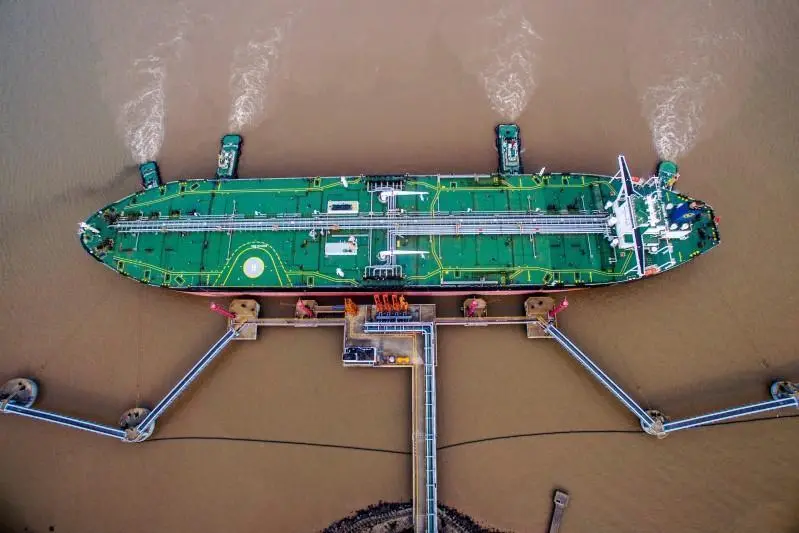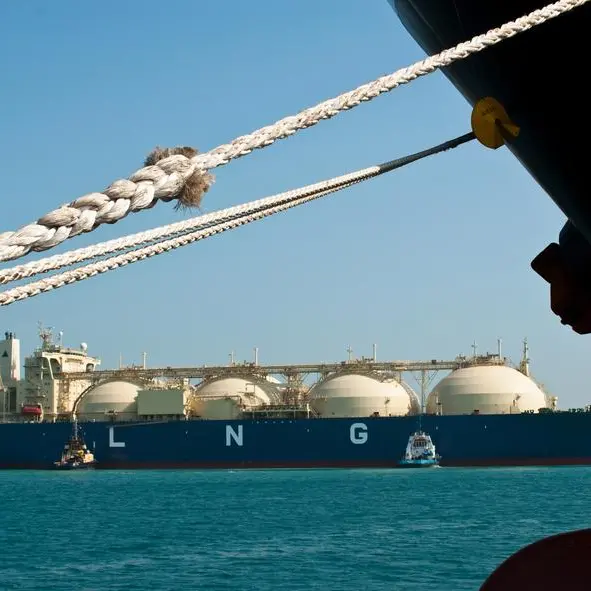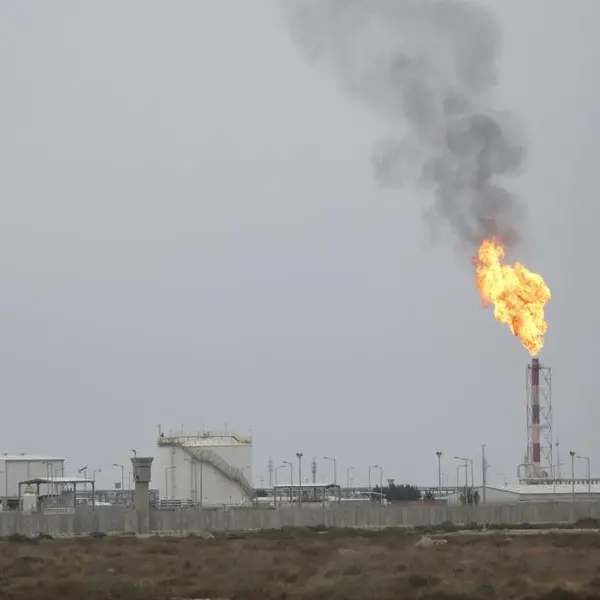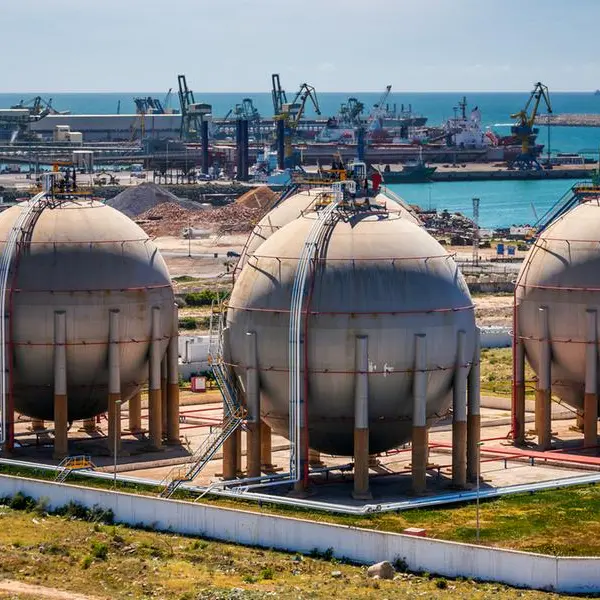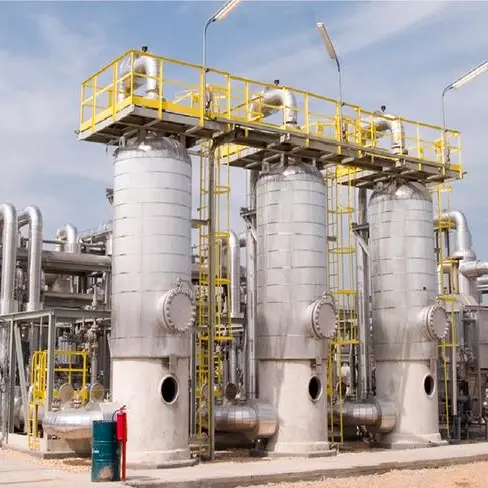PHOTO
Egypt’s Minister of Petroleum and Mineral Resources, Karim Badawi, chaired the general assemblies of Western Desert Petroleum Company (WEPCO) and Badr Petroleum Company (Bapetco), via video conference, to review the companies’ performance during the fiscal year 2023/2024.
During the meeting, Badawi highlighted the significant progress in developing infrastructure and expanding the capabilities of the Hamra Oil Terminal in El Alamein. The terminal is being transformed into a strategic hub for oil and petroleum product trading, enhancing its capacity and efficiency, and aligning with the Ministry’s vision and the Egyptian General Petroleum Corporation’s (EGPC) objectives.
“The Hamra Oil Terminal is a strategic asset that plays a critical role in Egypt’s oil and gas industry,” Badawi said. “We are committed to continually developing its infrastructure and expanding its capabilities to meet the growing demands of the sector.”
Ibrahim Masoud, Chairperson of WEPCO, presented the company’s achievements, including the receipt of approximately 81 million barrels of oil through Hamra’s storage facilities and the shipment of roughly 27 million barrels through its marine facilities. The company also delivered around 54 million barrels to refineries through pipelines, all while adhering to safety and environmental regulations. WEPCO achieved 27 million safe working hours and consistently implemented safety and environmental measures.
“We are committed to ensuring a safe and efficient operation at the Hamra Oil Terminal while upholding the highest standards of safety, health, and environmental protection,” said Masoud.
Masoud also highlighted WEPCO’s commitment to asset integrity and operational safety, with the implementation of a new integrated system to improve the life expectancy of equipment and ensure maximum returns.
The meeting also reviewed ongoing and planned projects, including the expansion of the northern zone at Hamra Oil Terminal. The project involves the construction of two new storage tanks, each with a capacity of 630,000 barrels of crude oil, increasing the terminal’s overall capacity to approximately 4 million barrels.
The northern zone expansion also includes the completion of tanks 11 and 12, further increasing the port’s overall capacity to 5.3 million barrels. Construction of tanks 13 to 16 is also underway, with deep foundations already complete. This expansion aims to maximize the use of available space in the northern and western zones, ultimately reaching a total capacity of 10.5 million barrels.
The meeting also focused on the southern zone expansion, which includes the construction of two new diesel storage tanks, each with a capacity of 20,000 tons, along with a power distribution station and other facilities. The second phase of this project involves the construction of three more diesel tanks, each with a capacity of 10,000 tons, along with two jet fuel storage tanks, each with a capacity of 20,000 tons, and an additional diesel tank with a capacity of 20,000 tons. Theseexpansions are being implemented by Petrojet, maximizing local content and accelerating their completion.
The meeting also reviewed the performance of Badr Petroleum, which is operated by WEPCO. Badawi highlighted the success of WEPCO in managing the old and mature Badr 1 field, which could serve as a model for investment in similar fields.
“The success of Badr 1 is a testament to WEPCO’s capabilities in managing mature fields, which can be leveraged for investments in other similar fields,” said Badawi.
Badawi also praised the efforts of the Badr 1 workforce, as well as their collaboration with Egypt’s digital exploration and production platform. He expressed his commitment to supporting production growth plans and expressed his hope for further positive results during the current fiscal year.
Masoud announced that the Badr X10 exploration well was put into production at a rate of 15 million cubic feet of gas and 550 barrels per day.
The general assembly reviewed the implemented initiatives aimed at increasing production in alignment with the Ministry’s plan, using a range of modern technological solutions. These efforts focus on improving efficiency, increasing production rates, maximizing the potential of unconventional reservoirs, and expanding proven reserves of crude oil and gas. WEPCO has produced approximately 1.5 million barrels of crude oil, while maintaining a low cost of production per barrel.
The company has also successfully increased proven oil and gas reserves by approximately 2 million barrels of oil equivalent. The remaining recoverable reserves now reach 15 million barrels of crude oil, achieved through drilling 7 exploration wells, 20 development wells, and the maintenance and recompletion of aging wells.
These operations were carried out while strictly adhering to safety standards and implementing all safety procedures, leading to 5 million hours of work without accidents. WEPCO is also consistently improving operational safety in alignment with the results of process and risk safety studies. The company has upgraded the fire-fighting system to cover all equipment and facilities, built a complete fire pump station, and modernized the detection and alarm system by adding fire detectors and installing control and monitoring units. The company also modernized the field’s infrastructure and equipped it with the latest technologies to facilitate the digital transformation, while implementing an integrated system for operational safety.
© 2024 Daily News Egypt. Provided by SyndiGate Media Inc. (Syndigate.info).
